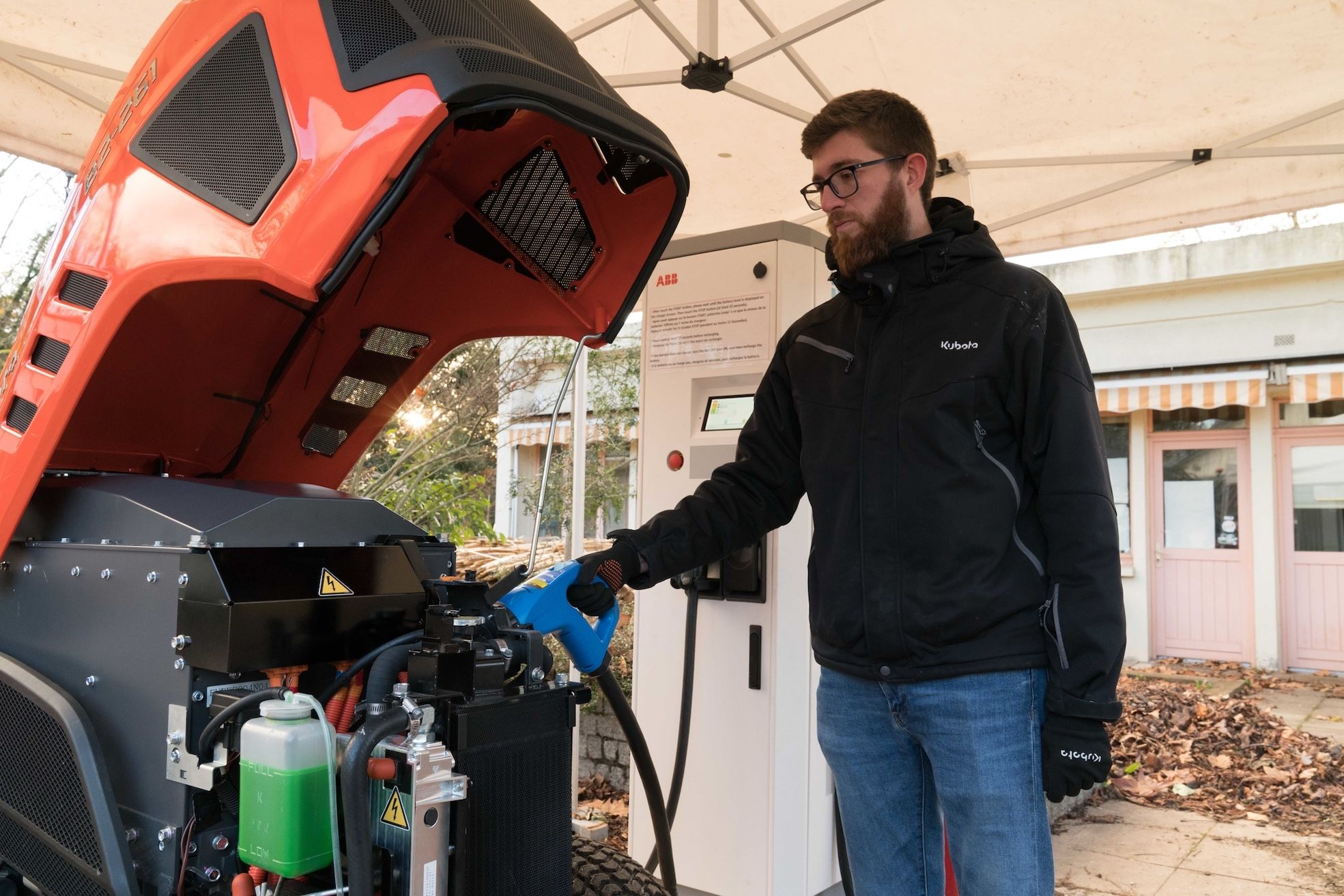
Electric and hydrogen tractors: new paths into the future
Are environmentally friendly agricultural machines a step towards greater sustainability?
E-mobility has been a hotly debated topic for years when it comes to climate change. While the public initially focused on local transport and cars, the spotlight is now turning to agriculture, which is still heavily dependent on diesel fuel and therefore contributes significantly to CO2 emissions. However, many agricultural machinery manufacturers are already reacting and producing machines with alternative drive methods. Electric and hydrogen tractors in particular appear to be a promising path for the future. We reveal what you need to know about them.
E-tractors: Drive from the plug socket
E-mobility has already established itself in the road transport sector - so it's no wonder that agricultural machinery is slowly following its lead. Some tractor manufacturers have already taken this new path and are offering the first e-models: Smaller tractor models in particular, such as farm loaders or compact tractors, are now available with a rechargeable battery as standard. The advantages are obvious: not only are electric tractors more climate-friendly, they are also significantly quieter and do not produce emissions that can be harmful to health in poorly ventilated buildings. In addition, some of the electricity required can be generated by a photovoltaic system, which means that operating costs are significantly lower than for combustion engines.
However, e-technology also has disadvantages. In particular, battery life with high work output is a critical point that machine manufacturers are still working on. The high purchase costs are also a deterrent for many farmers at first. However, major manufacturers are already researching new solutions to be able to offer e-tractors with higher work outputs as standard.
Hydrogen tractor: alternative to diesel?
In addition to electric tractors, another hope for climate change in agriculture is the use of environmentally friendly fuels. In particular, work is being done on the use of hydrogen as a fuel. The first agricultural machinery manufacturers have already brought out prototypes with hydrogen engines: these convert the chemical energy of hydrogen into work and heat, producing only pure water as “exhaust gas”. Hydrogen engines are particularly interesting for the agricultural sector, as their efficiency is quite good. In addition, unlike electric tractors, no large batteries are required, meaning that hydrogen engines can also be used for longer working hours and high working periods.
However, hydrogen does not only have advantages. The production of the fuel in particular is currently still very energy-intensive and therefore not very efficient. In addition, hydrogen tractors are not yet ready for series production. Although some tractor manufacturers such as Fendt and Deutz have already presented prototypes with hydrogen engines, series production is not scheduled to begin until the coming years.
Ammonia as a fuel
n 2022, the company Amogy presented an ammonia-powered tractor. The trick: ammonia is converted into hydrogen via a reactor, which then powers a hydrogen cell. Ammonia propulsion is not yet ready for series production, but Amogy has already demonstrated in other test objects that even larger vehicles such as trucks and a ship can be powered by this system. This form of propulsion is not only important for agriculture because of its climate neutrality, but also because ammonia is also a component of liquid manure. Clever technical solutions could make it possible for farmers to produce their own fuel in the future.